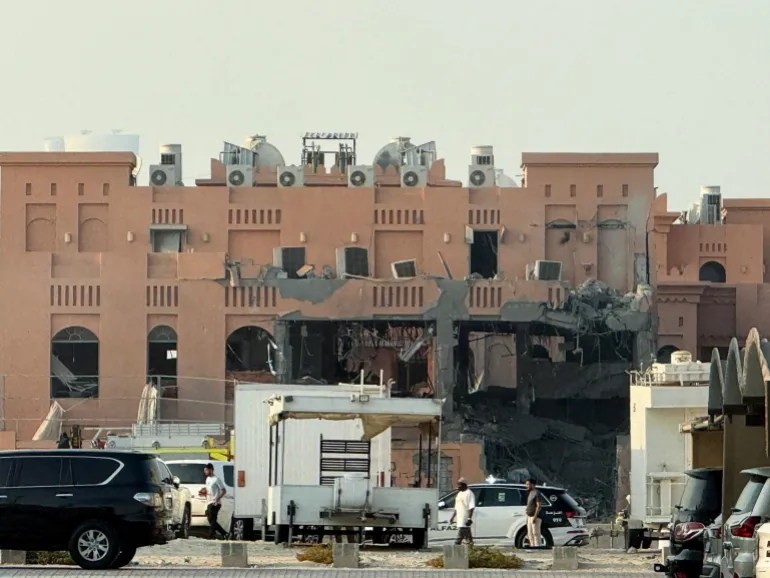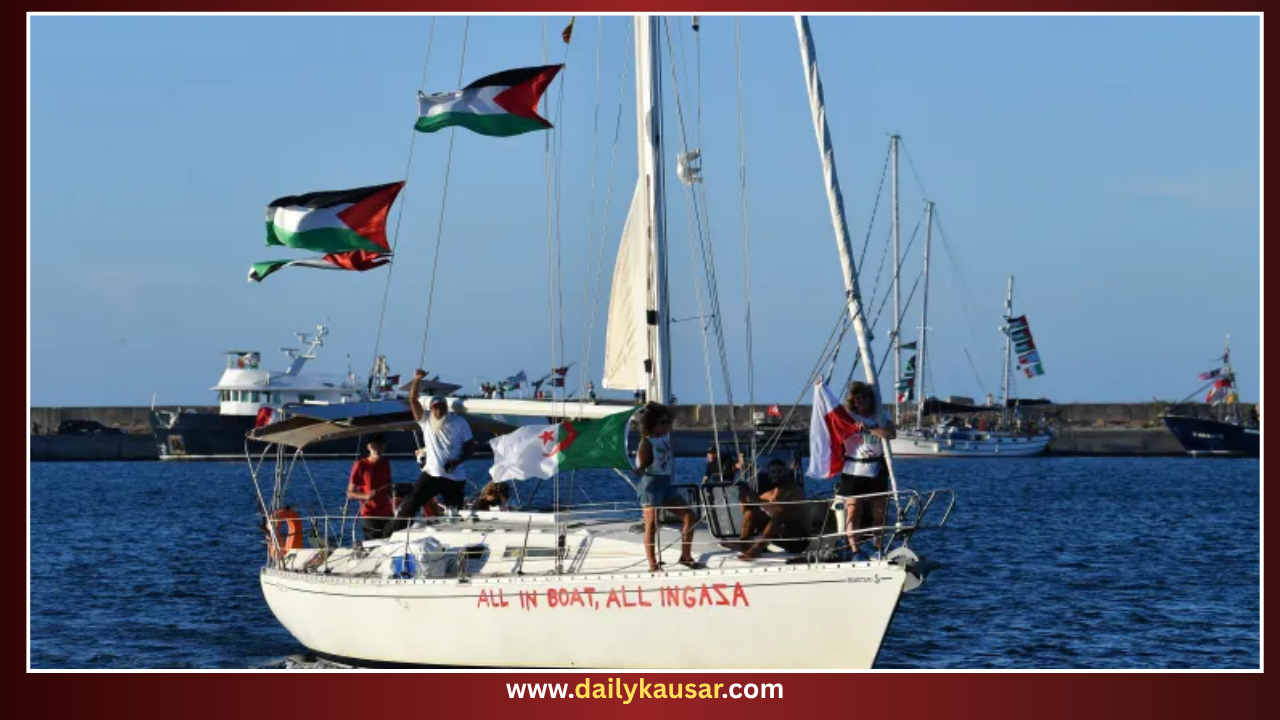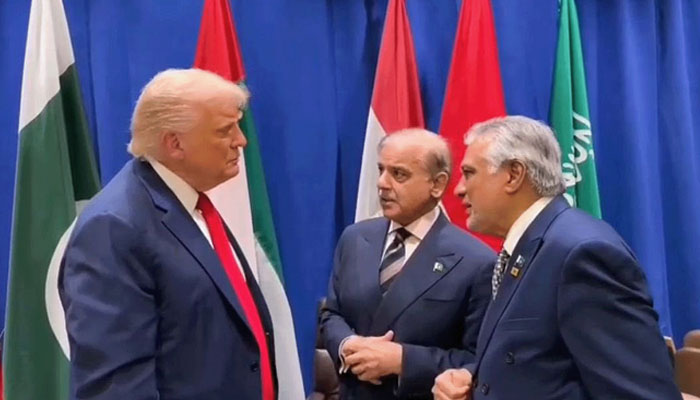Doha, Qatar – September 9, 2025 – The Middle East crisis took a dramatic turn today as the Israel Defense Forces (IDF) confirmed it carried out a targeted strike against Hamas leaders in Doha, the capital of Qatar. Explosions were heard near a residential compound, and thick plumes of smoke rose above the city skyline, sending shockwaves through both local residents and the international community.

The strike is being reported by major outlets including Reuters, CNN, Al Jazeera, and The Guardian, marking the first known Israeli attack on Qatari soil. The escalation comes at a highly sensitive moment, as Qatar has long been a central mediator in ceasefire talks between Israel and Hamas.
How the Attack Happened
Eyewitnesses in Doha described loud blasts near the Legtifya petrol station, with emergency vehicles rushing to the scene. According to the Israeli military, the operation targeted “senior Hamas leadership involved in directing attacks against Israel.
Sources claim that Khalil al-Hayya, a senior Hamas negotiator, was among those targeted. This has not been independently confirmed, but local reports suggest casualties within the compound.
The Qatar news agency reported that residents were evacuated, while hospitals in Doha were placed on high alert following the attack.
Qatar’s Strong Reaction
The Qatari government immediately condemned the attack, calling it a “criminal assault and a blatant violation of sovereignty.” In an official statement, Qatar stressed that such actions undermine its role as a neutral mediator and could destabilize the region further.
Al Jazeera, the Doha-based media network, gave live coverage of the explosions, highlighting the symbolic impact of striking a nation that has consistently hosted peace negotiations and ceasefire discussions.
Israel’s Position
The Israel Defense Forces stated that the strike was part of a broader strategy to dismantle Hamas networks across multiple countries, including Gaza, Lebanon, Syria, and now Qatar. Israeli officials justified the action by pointing to Hamas’s continued rocket launches and its alleged use of foreign safe havens to coordinate attacks.
At the same time, the move risks inflaming tensions with Qatar, a U.S. ally and home to a major American military base.
Hamas Response
A spokesperson for Hamas condemned the strike, accusing Israel of attempting to sabotage ongoing peace talks. The group warned that such actions will only lead to greater conflict in the region.
Global Reactions
CNN reported that U.S. officials were in close contact with Qatar and Israel to prevent further escalation.
The Guardian emphasized the potential collapse of the fragile ceasefire proposal, which was backed by international mediators including the United States.
Diplomatic experts argue that this incident could trigger a new phase of the Israel–Qatar relationship, shifting Qatar from mediator to potential frontline actor in the conflict.
The Bigger Picture
This strike highlights how the ongoing conflict is no longer limited to Gaza or Israel’s neighboring countries. By extending military operations into Doha, Israel has widened the battlefield, directly involving a nation that has played a central role in peace mediation.
For Qatar, which has carefully balanced its ties with Israel, Hamas, and Western allies, this attack is a direct challenge. It also puts pressure on regional powers, including Saudi Arabia, Egypt, and Turkey, to respond diplomatically.
Recent News:
Nepal Protest Violence: At Least 13 Killed Amid Social Media Ban, Reports Cite Corruption Roots
Trump’s Role and U.S. Policy
Former U.S. President Donald Trump, who has remained vocal on Middle East policy even after leaving office, weighed in on the crisis, calling the Israeli action “decisive.” However, analysts warn that the strike could complicate U.S. diplomacy in the Gulf, particularly with Qatar hosting America’s largest base in the region.
The best Trump approach, according to his supporters, is a strong pro-Israel stance. But critics argue that such rhetoric risks undermining delicate negotiations.
What’s Next?
he situation remains fluid. With Qatar condemning the strike and Israel defending its decision, global powers are urging restraint. Questions now dominate international headlines:
-
Will Doha continue to act as a mediator, or step back from ceasefire talks?
-
Could this attack mark the beginning of wider Israeli operations across the Gulf?
-
How will Hamas respond, and what role will international players like the U.S. and UN take?
This is not just another escalation—it is a historic moment in Middle East geopolitics. The Israeli strike on Hamas leaders inside Qatar’s capital could redefine regional alliances, alter peace negotiations, and shift the trajectory of the conflict for years to come.
As the world watches, the people of Doha find themselves at the center of a crisis that is shaking global diplomacy. For now, the focus remains on whether this attack will ignite broader violence or force new urgency in negotiations for peace.
Disclaimer
This article is based on information reported by verified international news outlets including Reuters, Al Jazeera, The Guardian, Associated Press, and CNN. Some details, particularly regarding casualties and identities of individuals, are still developing and not independently confirmed at the time of publication. The situation remains fluid, and facts may change as more official statements become available.
We are committed to responsible journalism, accuracy, and transparency. This report avoids speculation, does not promote misinformation, and will be updated as credible sources release further information. Readers are encouraged to follow official announcements and trusted media for the latest verified updates.




3 thoughts on “Israel Strikes Hamas Leadership in Doha: Qatar Condemns Attack Amid Global Shock”